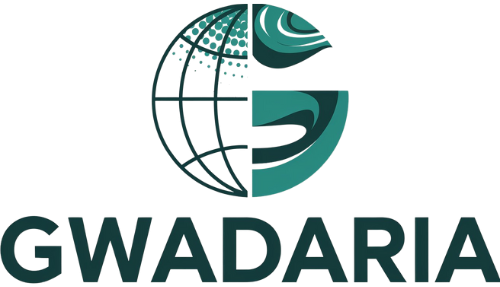NIST Particular Publication 800-53 units an exemplary customary for safeguarding delicate knowledge. Although initially designed for presidency businesses, the framework has develop into a preferred inclusion in most safety packages throughout a variety of industries.
The rising recognition of NIST 800-53 is probably going pushed by a want to enhance knowledge safety practices in response to rising knowledge breach prices, and when a superior knowledge safety coverage is required, the most secure choice is to emulate a cybersecurity framework trusted to guard federal data techniques.
Nevertheless, with 20 management households and 90 safety controls, monitoring compliance efforts with NIST 800-53 isn’t simple. To speed up this effort, the guidelines beneath will provide help to align your data safety program with the first management pillars of NIST 800-53.
The 20 NIST SP 800-53 Safety Controls
NIST SP 800-53 contains 20 management households setting the baseline of information safety for federal data techniques. Many of those controls map to different frameworks and requirements, such because the NIST Cybersecurity Framework and ISO/IEC 27001.
For a mapping between NIST 800-53 controls and different frameworks, check with this useful resource by NIST.
For extra particulars concerning the safety and privateness controls of NIST 800-53, check with the official publication of the framework by the Nationwide Institute of Requirements and Expertise (NIST).
NIST 800-161 additional expands the availability chain threat administration management household of NIST 800-53. Mixed, each threat administration frameworks create the muse for a Provide Chain Threat Administration (SCRM) program.
You’ll be able to monitor how your distributors align with NIST 800-53 with this free NIST 800-53 threat evaluation template.
1. Obtain a Safety Management Baseline
NIST 800-53 specifies a safety controls baseline for attaining the framework’s minimal knowledge safety customary. Reaching this minimal safety customary units the muse for full compliance with the framework.
Confer with this useful resource to view all the NIST 800-53 controls and baselines.
2. Implement Management Enhancements
Management enhancements additional increase upon the performance and efficacy of a given management to construct upon safety management baselines. Management enhancements are elective for entities not obligated to adjust to NIST 800-53 – those who don’t deal with or course of knowledge impacting nationwide safety.
Nevertheless, there are important system safety advantages of implementing management enhancement, even when they aren’t necessary. Implementing controls enhancements within the Entry Management household would offer extra accounts administration safety, akin to inactivity logout and privileged consumer accounts. These enhancements might cut back the influence of safety incidents with the best affect on injury prices, akin to third-party breaches.
Learn to cut back the influence of third-party breaches.
Management Enhancements are included beneath the record of baseline controls in every management household (check with this management catalog spreadsheet by NIST). They are often recognized as an abbreviated identify of a baseline management, adopted by a quantity in parentheses, representing the sequential variety of the improved management.
Find out about the most effective practices of compliance monitoring.
3. Delegate Tasks and File Proof of Implementation
Designate a person or crew to take possession of the implementation of all NIST 800-53 safety controls. This accountability ought to embody monitoring the progress of compliance efforts and ongoing alignment with the framework.
A specialised particular person or crew also needs to be delegated the accountability for making certain all newly developed techniques (together with cloud computing techniques) and system growth lifecycles adjust to the framework.
Compliance efforts must be tracked in an official doc that additionally identifies all accountable events. This doc will provide proof of compliance throughout an audit.
To make sure these reviews are available for auditors, it’s finest to publish them alongside different related safety assessments in a shared public profile.
See a demo of Cybersecurity’s Belief Web page function.
4. Acknowledge all Current Safety Insurance policies and Operations
All NIST 800-53 controls should combine with current safety frameworks and insurance policies. The designated implementation crew (see level 3) ought to full an inner audit of all relevant insurance policies and map their safety necessities to every NIST 800-53 management household.
This audit also needs to embody relevant laws and safety requirements since their knowledge safety requirements might complement NIST 800-53 compliance. Some examples embody:
5. Centralize Impartial Safety Controls
The NIST 800-53 safety management structure ought to centralize impartial controls relevant to a number of departments and techniques.
Mapping all safety techniques to centralized inheritable controls will considerably reduce implementation prices and useful resource calls for throughout operation. System-specific safety controls ought to stay localized.
For instance, the entry management household shall be utilized by all departments implementing least privilege insurance policies and monitoring for insider threats. Deploying a number of situations of this management household throughout every division would create an pointless burden on course of assets and implementation instances.
Observe NIST 800-53 Compliance with Cybersecurity
Cybersecurity’s end-to-end third-party safety threat administration resolution helps companies effectively scale their Vendor Threat Administration efforts. Included within the platform’s library of customizable threat assessments is a NIST SP 800-53 questionnaire, and a function that intelligently maps evaluation responses to this customary highlights compliance gaps that must be addressed earlier than an audit.
Prepared to avoid wasting time and streamline your belief administration course of?

